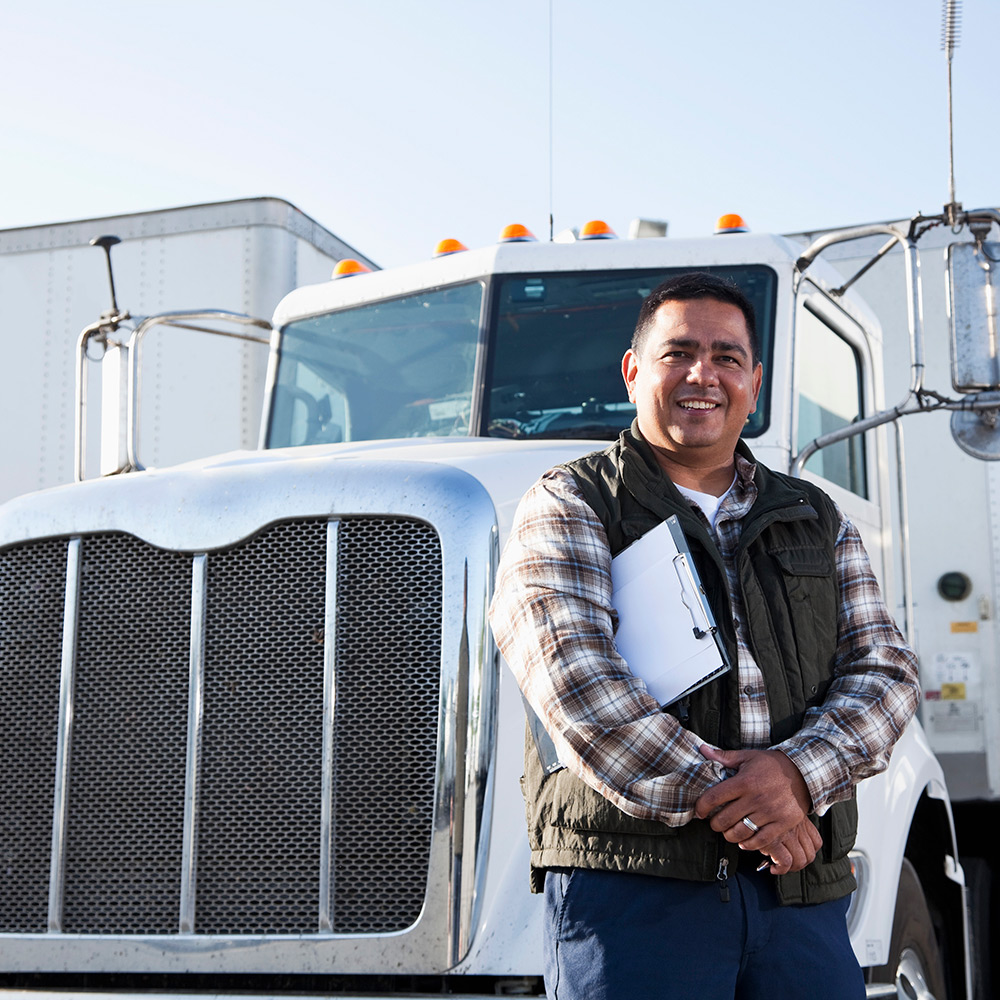
Service Fleets: 3 Ways a Toll Management Platform Can Help
Service fleets are crucial to society like long-haul operations, but their needs differ in several important ways. Recruitment may be easier in the service fleet world; commercial driver’s licenses are not always required, and there is more likelihood of a predictable schedule with at-home time, as FreightWaves recently reported. Yet this can also translate to a workforce with less overall experience, which can impact key industry goals such as safety and efficiency. And while the number of miles logged by service fleets may be fewer, the logistical challenges of making multiple deliveries per day, adapting to ever-changing routes and navigating urban congestion add to the challenge of meeting customer expectations.
Because their highway time is limited, tolls are not as big of a concern for service fleets; toll management solutions that are indispensable in the over the road world are less likely to be on the radar for service fleet managers. The value of benefits like simplified toll payment and greater visibility into the reasons behind fees and violations may not be apparent at first. But a closer look reveals that toll management can benefit all types of fleets. Moreover, the same rich data streams that drive the success of toll management platforms like Bestpass can also help service fleets to achieve some of their most important goals.
Why Toll Management?
No matter how much exposure any given fleet has to toll, it’s almost a given that the task of dealing with it is a distraction that no one wants to take on. In the absence of a toll management program, the job of processing payments and calling tolling agencies to address problems typically falls to a fleet, safety and/or risk manager, an accounting department or even a CFO — in short, someone with plenty of primary responsibilities that must come first. As it falls (understandably) to the bottom of to-do lists, the corresponding delays rack up administrative fees.
In the case of service fleets, this can be further complicated when there are multiple locations, each of which is tasked to manage toll independently. This creates a diminished ability for the fleet to accurately report on expenses and reliably project route costs.
Toll management programs provide an answer. Data is centralized and transformed it into insights that are accessible through an online portal, while the burden of toll processing is removed — allowing staff to refocus on their primary responsibilities. There may be other benefits that are program-specific; Bestpass, for instance, offers a misread service that automatically addresses overbilling, plus enrollment of all fleet equipment and plates into a single consolidated tolling account. Because the program has established relationships with tolling agencies throughout the country and can qualify small fleets for volume discounts, there is near-universal coverage with access to the lowest tolls available. And, perhaps most importantly, there are some Bestpass benefits can be applied specifically to key service fleet goals. Here are three ways a toll, violation, and citation management platform can benefit service fleets:
1. Safety and Risk
While greater exposure to tolling makes misreads, fees and billing errors a bigger headache for OTR fleets, service fleets have a greater exposure to citations that presents the same kinds of pitfalls. Traveling through urban areas, vehicles are liable to make frequent encounters with automatic red-light and speeding cameras, even as drivers can be tempted to race in the effort to meet the demands of their delivery schedules. The need to address driver citations represents yet another drain on time and resources for the same staff tasked with handling tolls. It’s also another factor making it difficult to accurately project fleet expenses.
Bestpass recently launched a citation payment service to extend its data centralization offerings beyond toll. The service allows customers to upload citations to an online portal, simplifying the payment process and opening greater visibility to where citations are occurring — both by area and by vehicle. In addition to enabling more effective cost tracking, the service can identify safety training opportunities for drivers who receive multiple citations.
2. Efficiency and Productivity
It comes with the territory for service fleets — vehicles housed at driver residences often get used for trips unrelated to the job. But the good news is that the greater toll visibility afforded by toll management programs makes it possible to flag tolls that are charged during off-hours usage or on unapproved routes. Those situations can then be addressed, and tolls can be billed back to drivers.
On the flip side, there is also a tendency among service fleet drivers to go out of their way to avoid tolls on their assigned routes. This may represent a legitimate effort to save the company money, but it may also overlook the extra fuel costs involved. The toll calculator on the Bestpass portal takes these factors into account, and it can help drivers and fleet managers to better plan and optimize their routes.

3. Customer Experience
The overall trucking industry push to improve retention has led to the current tendency to view drivers and other internal stakeholders as fleet customers themselves. Setting a tone for professionalism in the workplace helps drivers to feel respected and valued — and it also helps that same tone to be extended into interactions on the outside.
It may not be immediately obvious, but toll management programs can support this effort, too. By leveraging data to help drivers steer clear of potential citations, for example, drivers are supported both in building their professional skills and in keeping their records clean. This same outlook can positively reframe the way that equipment such as vehicle-based electronic logging devices (ELDs) is viewed by drivers: It’s there to support them.
It's also worth noting here that probably the biggest difference between the day-to-day tasks performed by OTR and service fleet drivers is the level of end-user interaction. While OTR operates largely behind the scenes, service drivers are routinely held to expectations of conforming to the schedules and expectations of customers — whether direct interactions are a regular part of their job. Providing training, building a culture that rewards professionalism, and optimizing routes to support drivers in making deliveries that are both timely and safe are all actions that get passed along into customer interactions, helping to create more positive experiences. Route optimization and cost tracking can enable more accurate and fair billing to be passed along to customers, as well.
Toward Integration
While we’ve already outlined three ways that the rich data streams provided by toll management programs can support service fleets, this may really be just the beginning. Fleets that have begun to unlock the power of data to optimize operations can plug into the application programming interface (API) of a company like Bestpass to empower dynamics that would have been challenging, if not impossible, in the not-too-distant past.
As a small example, one practice common for companies managing toll in multiple locations is spreading costs across the entire fleet — it’s simply been too challenging to pinpoint the correct tolling agency to be addressed for any given transaction. The integration of data changes the equation, helping to keep the fleet lean and agile. And the fact that this type of visibility can be accessed on demand opens the possibility of taking a much more predictive approach to fleet expenses.
Fact is, the power of data is just beginning to be unlocked by the trucking industry, but already it can be used to significantly impact many of the most important concerns for service fleets, including safety and risk, efficiency and productivity, and the customer experience. Unaware of the availability of data streams, fleet decision-makers may never have considered these opportunities before —or perhaps they’ve considered them, but only as a part of the distant future.
Request a Demo of Our Toll Management Software Today!
Not sure which Bestpass plan is right for you? Our tolling specialists are here to help. They can identify the right transponder strategy to save you the most money and time.

